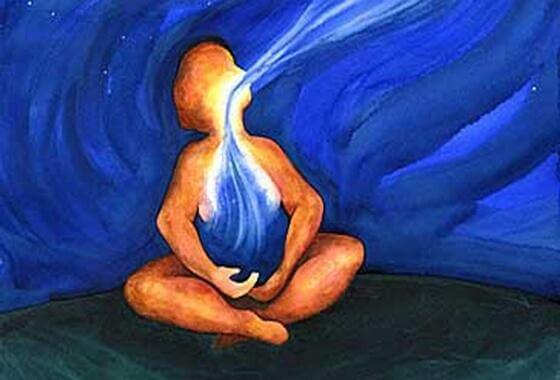Anaximenes of Miletus-Urdu (An Ancient Greek Philosopher)

آناکسیمنس ملطی۔ قدیم یونانی فلسفی
According to the surviving sources on his life, Anaximenes flourished in the mid 6th century B.C.E. and died about 528. He is the third philosopher of the Milesian School of philosophy. So named because like Thales and Anaximander, Anaximenes was an inhabitant of Miletus, in Ionia (ancient Greece). Theophrastus notes that Anaximenes was an associate, and possibly a student, of Anaximander.
The Soul
For Anaximenes, the air is divine and causes life. It is also the source of life which encloses the cosmos. As well as the first principle that is responsible for the maintenance of all living organisms. The air is the divine psychic principle between microcosm and macrocosm. As the soul (air) of an individual organism maintains the single individual organism. So the soul of the cosmos (universal breath) surrounds and maintains the whole universe. Hence Anaximenes’ cosmos is conceived as a huge animate being with divine origins.
Doctrine of Air
Anaximenes seems to have held that at one time everything was air. Air can be thought of as a kind of neutral stuff that is found everywhere. And it is available to participate in physical processes. Natural forces constantly act on the air and transform it into other materials. Which came together to form an organized world. In early Greek literature, the air is associated with the soul (the breath of life). Anaximenes may have thought of air as capable of directing its own development. As the soul controls the body (DK13B2 in the Diels-Kranz collection of Presocratic sources). Accordingly, he ascribed to air divine attributes.
Life
Nothing is known of his life of Anaximenes (pronounced an-ax-IM-en-ees), other than that he was the son of Eurystratos of Miletus, and was the pupil or companion of Anaximander. Some say that he was also a pupil of Parmenides of Elea, although this seems unlikely. He lived for at least part of his life under Persian rule, and so he may have witnessed the Ionian rebellion against Greek occupation. There is some evidence from letters that he was in communication with Pythagoras, although any influence on Pythagoras’ philosophical development was probably minor (other than the desire to explain the world in non-mythological terms).
Floating Broad Disk
Anaximenes described the earth as a broad disk, floating on the circumambient air. He believed that the formation of the sun and stars were also due to the processes of condensation and rarefaction, and these bodies developed their flaming characteristics due to the velocity of their motions. He used a similar explanation for the natural phenomena such as thunder and lightning, which he described as a result of wind breaking out of clouds, he described rainbows as the result of the rays of the sun falling on clouds, earthquakes result due to the cracking of the earth when it dries out after being moistened by rain, hail is caused by frozen rainwater etc.
Note: This article was originally published on our related blog. We have merged content from our educational subdomains to provide easier access in one place. The original post is still available at: https://videos.urdutubes.com/2019/04/anaximenes-of-miletus-urdu.html
All content is owned and authored by us, and redistribution or reuse is not allowed without permission.
Note: This post is part of our content merger from multiple educational subdomains. To access the original content, visit: books.urdutubes.com for book-related content, PDFs, and downloads, or videos.urdutubes.com for video-related posts. All content is owned and authored by us, and redistribution or reuse is not allowed without permission.




![Khawateen Digest February 2025 [Download PDF] Khawateen Digest – February 2025 Edition: A Must-Read for Every Woman! The February 2025 issue of Khawateen Digest is packed with engaging stories, insightful articles, and practical tips that cater to the modern woman. From inspiring tales to expert beauty and health advice, this edition has it all. Whether you're in the mood for a gripping story or seeking helpful tips for daily life, this digest will keep you hooked. Don't miss out on the latest edition – download the Khawateen Digest February 2025 now and enjoy a well-rounded read that speaks to every woman's interests.](https://www.urdutubes.com/wp-content/uploads/2025/04/Khawateen-Digest-February-2025-Download-PDF-218x150.jpg)
![Khawateen Digest January 2025 [Download PDF] Khawateen Digest January 2025 [Download PDF]](https://www.urdutubes.com/wp-content/uploads/2025/04/Khawateen-Digest-January-2025-Download-PDF-218x150.jpeg)
![Kiran Digest April 2024 [Download PDF] Kiran Digest April 2024 [Download PDF]](https://www.urdutubes.com/wp-content/uploads/2025/04/Screenshot-2025-04-13-113317-218x150.png)
![Kiran Digest March 2024 [Download PDF]](https://www.urdutubes.com/wp-content/uploads/2018/05/KiranDigestMay2018255BDownloadFreePDF255D.jpg)





![Islamic Lessons [Islami Asbaaq by Mufti Shoibullah]](https://www.urdutubes.com/wp-content/uploads/2018/05/IslamicLessons255BIslamiAsbaaqbyMuftiShoibullah255D.jpg)
![Hijab Digest May 2021 [PDF Download]](https://www.urdutubes.com/wp-content/uploads/2018/06/HijabDigestMay2018255BFreePDFDownload255D.jpg)
